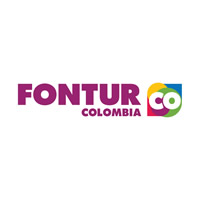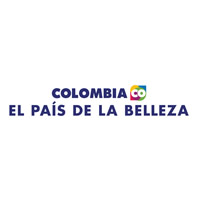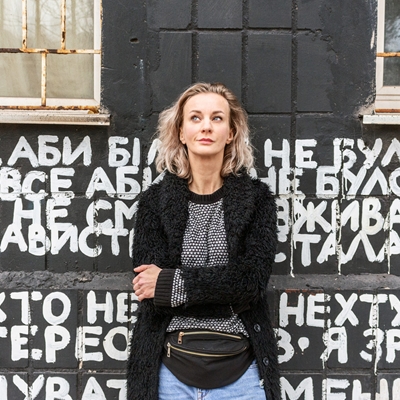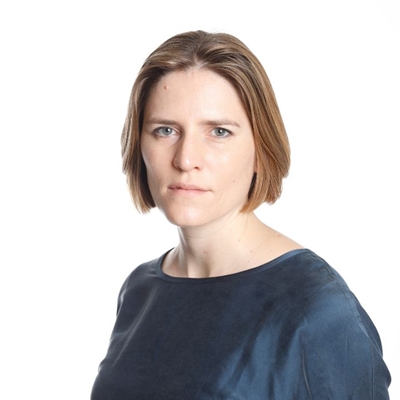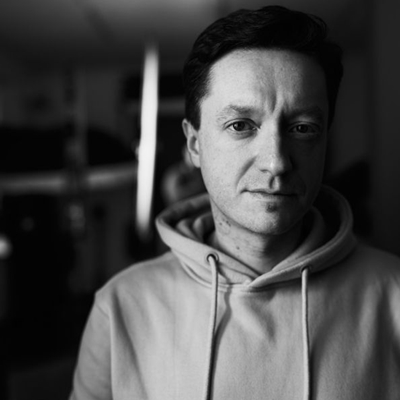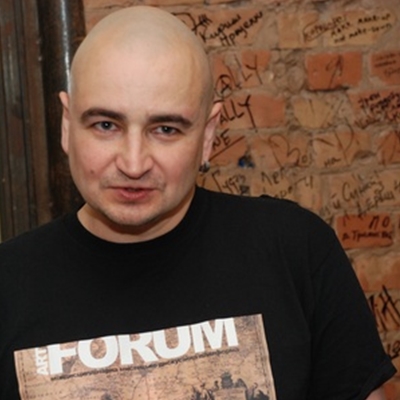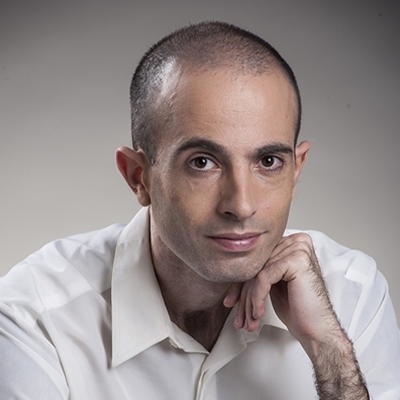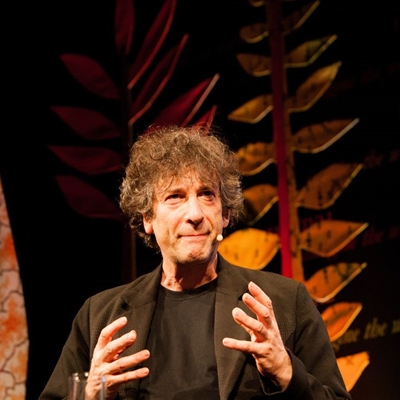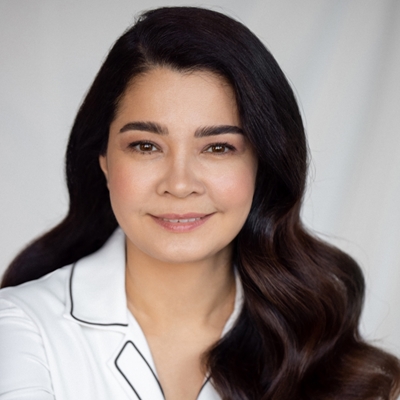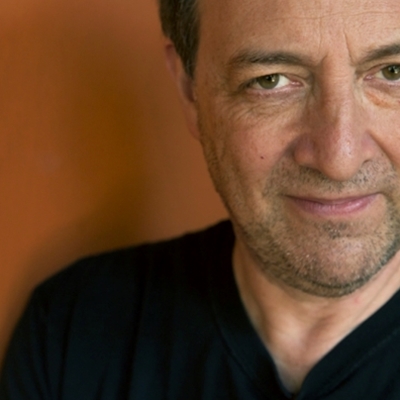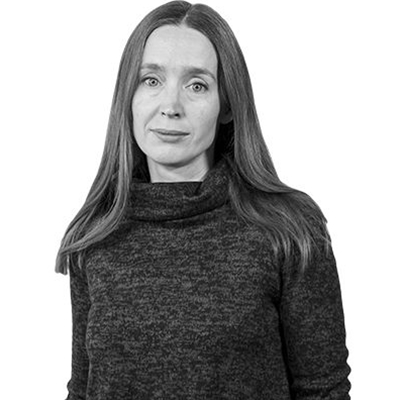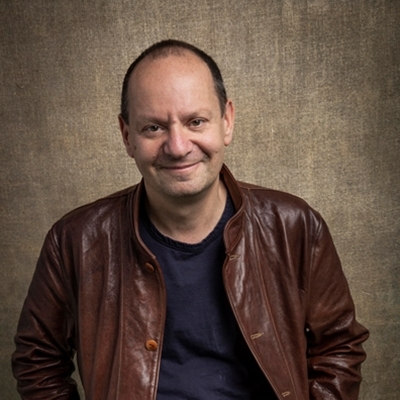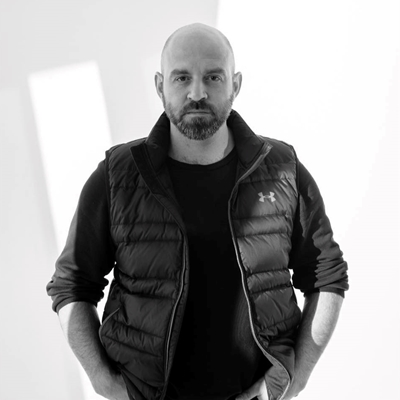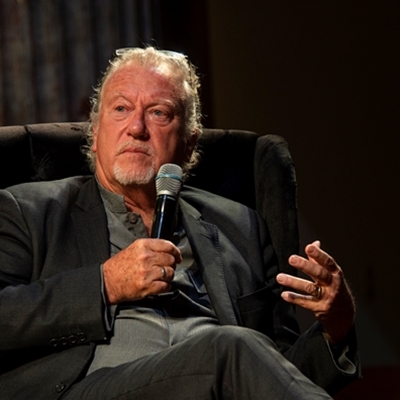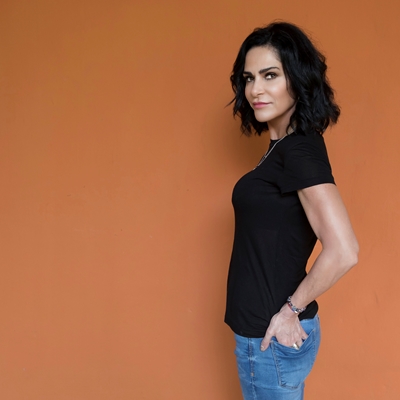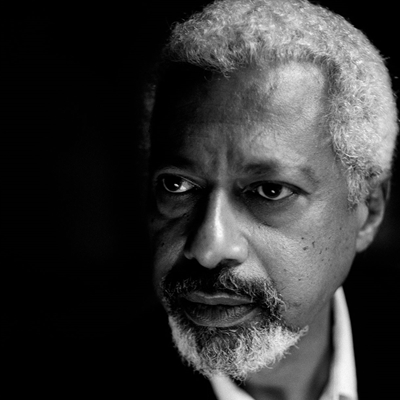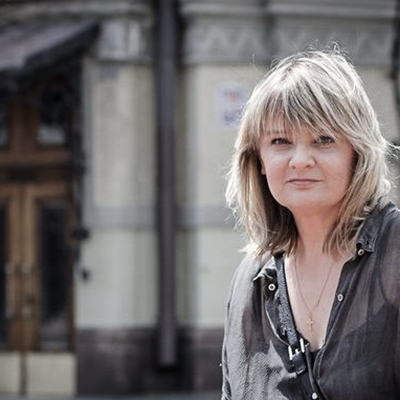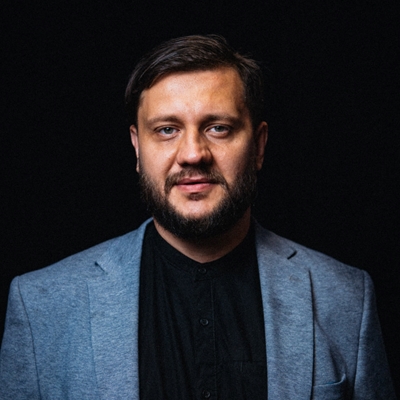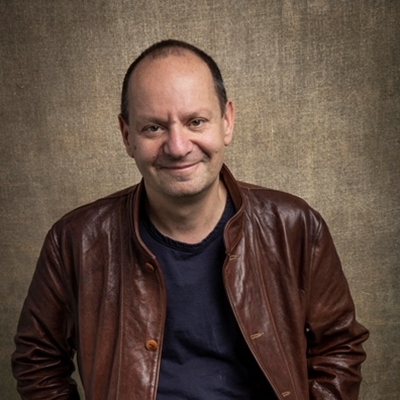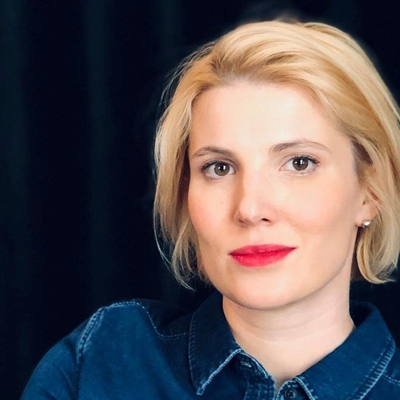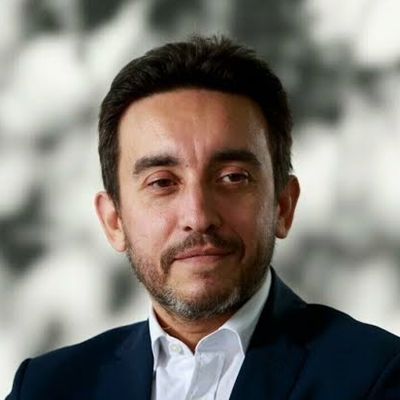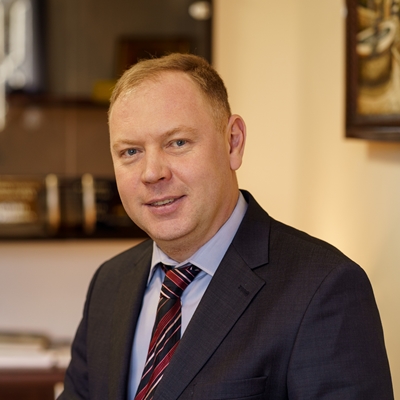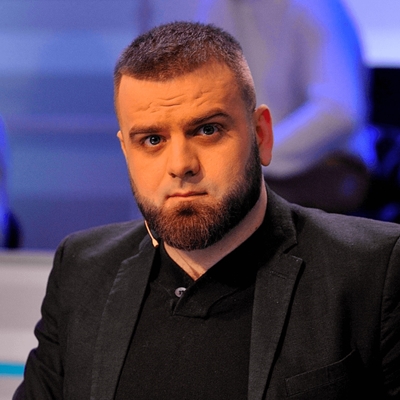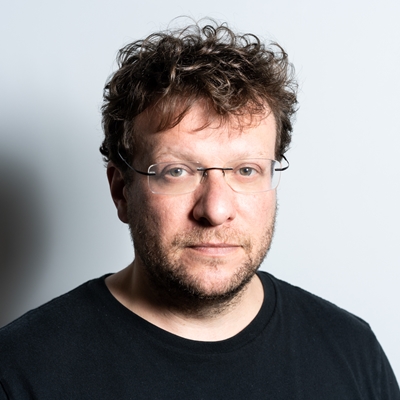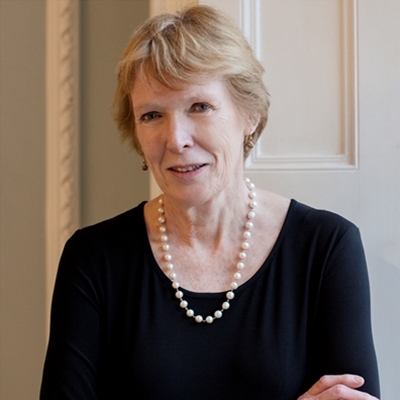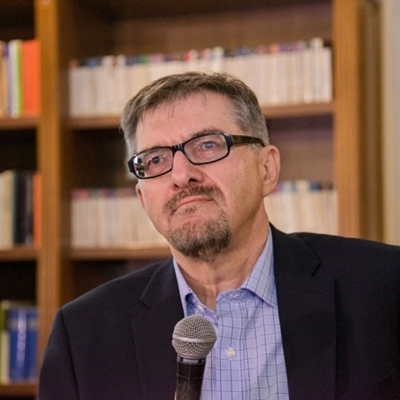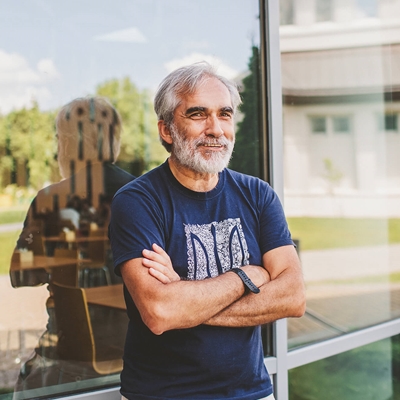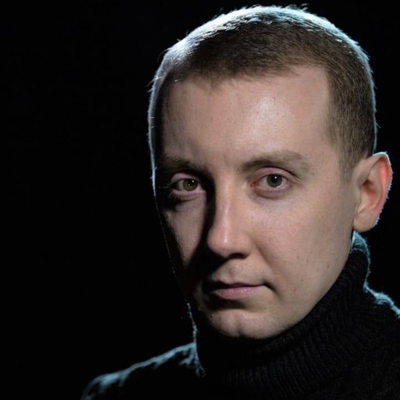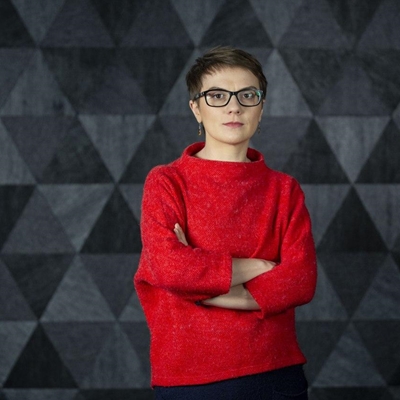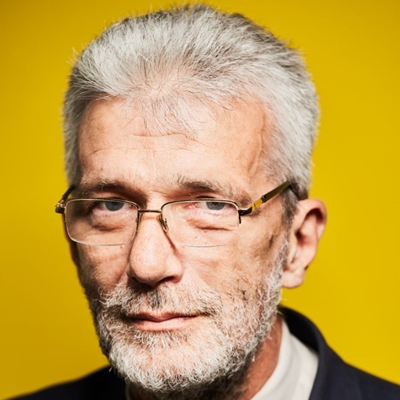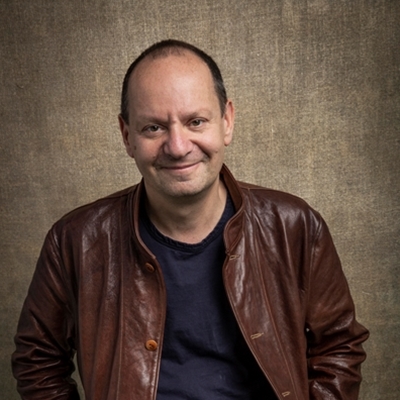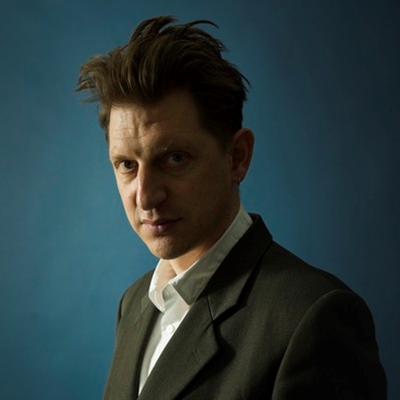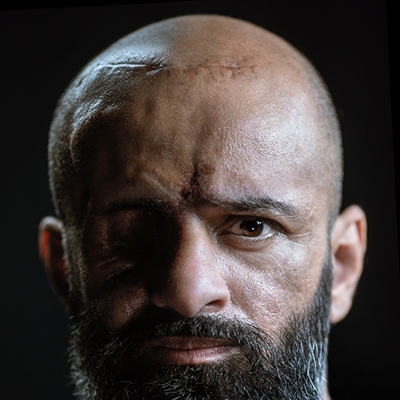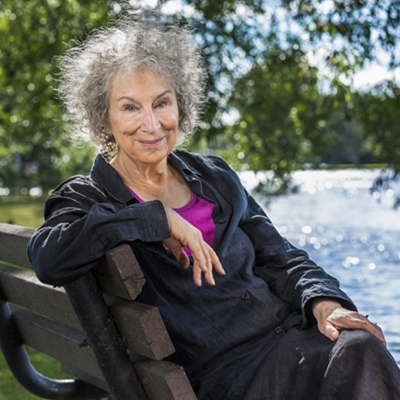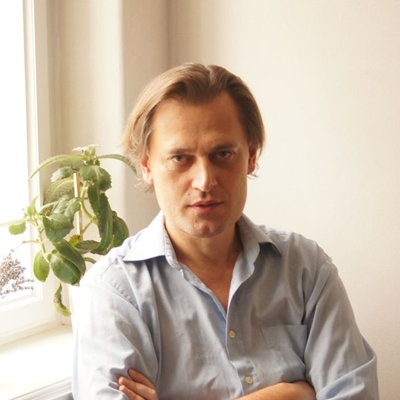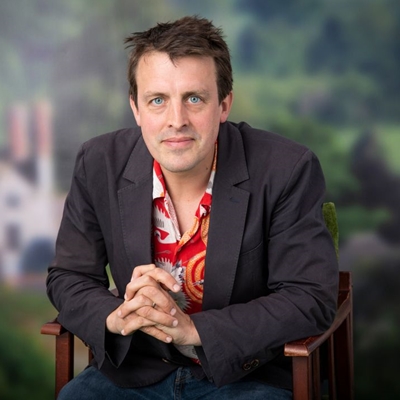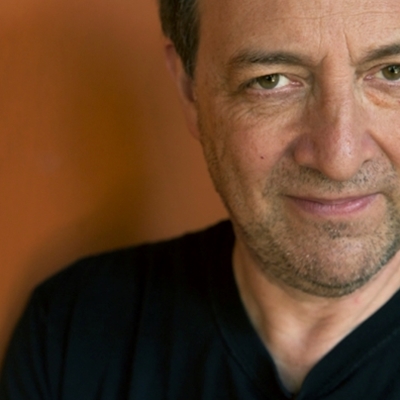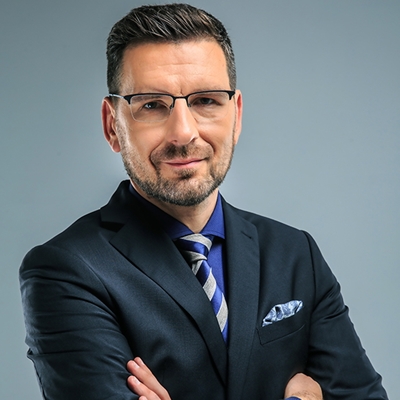Online Events
Event 46
Abdulrazak Gurnah in conversation with Philippe Sands
Teatro Municipal
The British novelist and academic, of Tanzanian origin, Abdulrazak Gurnah, winner of the 2021 Nobel Prize for Literature and shortlisted for the Booker Prize, is celebrated for his skills in examining the human condition, linking matters such as exile, migration, identity, colonialism and the destiny of refugees among cultures and continents. In conversation with Philippe Sands.
Simultaneous translation from English to Spanish available
Sponsored by SURA

Event 4
From Picasso’s Guernica and Wilfred Owen’s poetry to the war rugs made by Afghani artisans, war has given rise to some of the most profound art we possess. In a world where social media rules, is there still a need for war art? What forms of expression has this conflict and others around the world created and how have social influencers responded?
Three Ukrainian artists – Diana Berg, designer and activist; Ostap Slyvynsk essayist, translator and poet, and Artem Polezhaka, poet-slammer singer and showman – talk to Emma Graham-Harrison, the Guardian’s senior international correspondent.
Event 51
María Larrea, Enrica Pérez and Judith Vélez in conversation with Juan Fernando Londoño
On film
Casa Tristán del Pozo - Fundación BBVA
Sponsored by CAF and with the support of Acción Cultural Española, AC/E
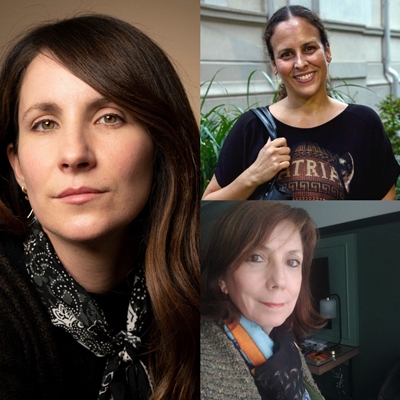
Event 5
The Israeli historian Yuval Noah Harari, author of Sapiens: A Brief History of Humankind and the children’s book Unstoppable Us talks to the English writer of science fiction, comics and screenplays. Chaired by Sevgil Musayeva, editor-in-chief of Ukrayinska Pravda.
Click here to watch this event in Ukrainian.
Closed captions are available for this event in English and Spanish. Click on the "cc" icon in the video frame to select.
Event 52
With the support of Open Society Foundations
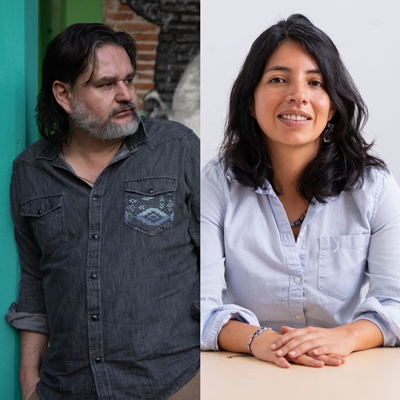
Event 6
Co-hosted with the Institute of Human Sciences (IWM), Vienna, this event explores how the war has changed people’s concept of Europe. How have the boundaries of Europe been defined previously – geographically, religiously, politically? Can we ever see Russia as a European country once again?
Volodymyr Yermolenko is a philosopher and editor of Ukraine World, an English-language news outlet. Philippe Sands is an international human rights lawyer and author of East West Street: On the Origins of Genocide and Crimes against Humanity. Tetyana Oharkova is a Ukrainian literary scholar, journalist and essayist. Pavlo Kazarin is a journalit, publicist and philologist-literary critic, author of Wild West of Eastern Europe. Chaired by Misha Glenny, British journalist and IWM Rector, author of McMafia and known for his focus on global crime.
Click here to watch this event in Ukrainian.
Closed captions are available for this event in English and Spanish. Click on the "cc" icon in the video frame to select.
Event 54
Abdulrazak Gurnah, Astrid Madimba, Natalia Sobrevilla and Chinny Ukata in conversation with Farid Kahhat
South to south conversations: decolonizing in order to see the world
Teatro Municipal
Are we at the end of decolonisation processes, or are these structures present throughout the world order? At this event, we talk to Abdulrazak Gurnah (Tanzania/United Kingdom), Chinny Ukata (Nigeria/United Kingdom), Astrid Madimba (Congo/United Kingdom) and Natalia Sobrevilla (Peru) about the long shadow of colonialism and how the long task of decolonisation is to be carried out, from the positioning of non-hegemonic narratives to countries’ legal and devolution processes. In conversation with Farid Kahhat.
Simultaneous translation from English to Spanish available
With the support of Open Society Foundations

Event 7
The experience of colonialism has shaped and even forged the national identities of countries all over the world. What can we learn about the post-colonial experience from the historical experiences of Latin America, Sub-Saharan Africa and the Middle East? Is there a form of post-colonial solidarity with Ukraine?
Olena Stiazhkina is a Ukrainian historian and former professor of history at Donetsk National University. Abdulrazak Gurnah is a Tanzanian-British novelist and academic, winner of the 2021 Nobel Prize in Literature. Lydia Cacho is a Mexican journalist, feminist and human rights activist. Ihor Pomerantsev is a poet and playwright. Dmytro Krapyvenko is a journalist and publicist. Chaired by the American biographer, war correspondent and staff writer for The New Yorker, Jon Lee Anderson.
Click here to watch this event in Ukrainian
Closed captions are available for this event in English and Spanish. Click on the "cc" icon in the video frame to select.
Event 8
Writers obsess with the power of words, but do words change anything? Or does poetry, in WH Auden’s phrase, make nothing happen? Across the world we see unprecedented amounts of propaganda aimed at destroying people’s lives. Propagandists usually hide behind ‘freedom of speech’ and the legal idea that ‘speech has no victim’. But what happens when, for example, Russian propagandists become an integral part of a military machine committing war crimes and even genocide? Are they aiding and abetting crimes against humanity, and can that be proven in a court of law? The panel explores the question of legal accountability for Russian state and other propagandists – and what words really do.
Bruno Maçães is a Portuguese politician and columnist for The New Statesman. Philippe Sands is an international human rights lawyer and author. Emma Winberg co-founded the White Helmets volunteer organisation in Syria. Liuba Tsybulska is head of the Hybrid Warfare Analytical Group of Ukraine Crisis Media Center. Andrii Shapovalov is a professional journalist and media manager. Maksym Skubenko is the CEO of Vox Ukraine media. Chaired by Peter Pomerantsev, author of This Is Not Propaganda.
Event 59
Pablo Cateriano y Gonzalo Zegarra in conversation with Mabel Cáceres
Communication and technology
Casa Tristán del Pozo - Fundación BBVA
Companies which use social media services such as TikTok; media outlets that offer versions of their news on the Internet; polarization and the goal of positioning ideas; we talk to two experts in communication, social media, democracy and politics. Pablo Cateriano (Peru), Communication graduate, journalist and CEO of Métrica, is the author of El arte de ser y parecer: Cómo construir y cuidar la reputación empresarial, a guide about the importance of reputation and public relations in corporate communication, based on his vast experience and with reference to successful cases. Gonzalo Zegarra (Peru) is a lawyer, former editor of Semana Económica and member of prominent press boards. In his book La democracia del click y del TikTok he covers the challenges of social media to politics, highlighting both their capacity to democratise public voices as well as their potential for creating intolerance and polarisation. These two experts will talk to Mabel Cáceres.
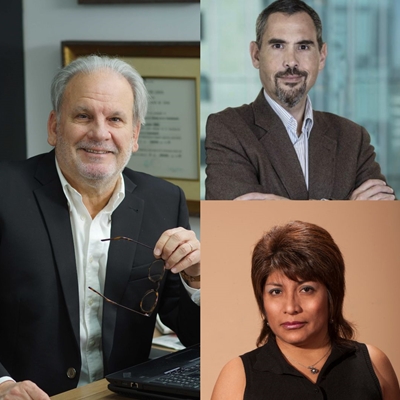
Event 9
Among the horrors of war, does Ukraine have reason to be optimistic about the future? What are the positives that may emerge for the people of Ukraine on the other side of the war?
Margaret MacMillan is a Canadian historian and professor at the University of Oxford. Serhii Plokhy is a Ukrainian historian, author of The Last Empire: The Final Days of the Soviet Union. Iaroslav Hrytsak is a Ukrainian historian and director of the Institute for Historical Studies of Ivan Franko National University of Lviv.
Click here to watch this event in Ukranian.
Closed captions are available for this event in English and Spanish. Click on the "cc" icon in the video frame to select.
Event 60
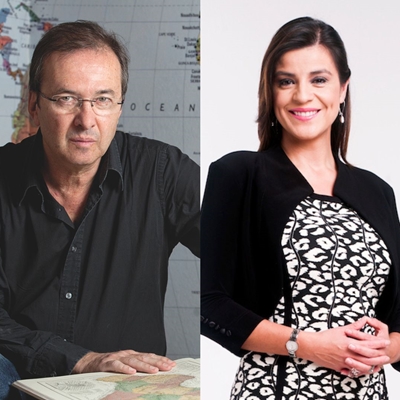
Event 65
Manuel Choqque, Mónica Huerta and Waldir Maqque talk to Andrea Ortiz de Zevallos
Peruvian gastronomy and produce
Casa Tristán del Pozo - Fundación BBVA
Just as with the cocoa of the Amazon region, which links the geographical origin of the product with the human factors of ancestral practices and beliefs, there are many Peruvian ingredients that cry out to be recognised, cared for and preserved. This session focusses on reflecting on the sources of these unique foodstuffs, which can only be found locally, and their use in the now world-renowned Peruvian cuisine. Are we going beyond marketing towards a genuine appreciation of our local varieties? Andrea Ortiz de Zevallos, Head of the Despensa Amazónica team and author of the book Madre de Dios, will talk to the agricultural engineer Manuel Choqque; Mónica Huerta, a gastronomical ambassador for the Peru brand, picantera and owner of La Nueva Palomino; and Waldir Maqque, author of the successful book Qué riquito.
Sponsored by TGP

Event 10
Ukraine and Syria are the first large-scale conflicts not only to be documented on social media but where social media is a theatre of war. In the same way that TV transformed the dynamics of Vietnam, social media will shape the experience of this war and its outcome. Will the ubiquity of social media result in accountability for wartimes? Will it hamper people’s ability to forget and one day even forgive?
Philippe Sands is an international human rights lawyer and author. Natalia Gumenyuk is a Ukrainian journalist specialising in conflict reporting. Stanislav Aseyev is a Ukrainian writer and journalist in Donetsk. Jonathan Littell is an Franco-American novelist and journalist who has worked with Médecins Sans Frontières. Masi Nayyem is a Ukranian lawyer and founder of the Miller legal company. Chaired by Andrii Kulykov, a Ukrainian journalist and radio presenter.
Click here to watch this event in Ukrainian.
Closed captions are available for this event in English and Spanish. Click on the "cc" icon in the video frame to select.
Event 66
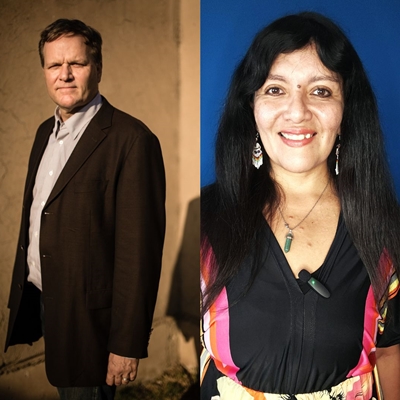
Event 11
Canadian novelist and poet Margaret Atwood, twice winner of the Booker Prize, talks to the Ukrainian literary critic and translator Yurii Prokhasko.
Click here to watch this event in Ukrainian
Closed captions are available for this event in English and Spanish. Click on the "cc" icon in the video frame to select.
Event 12
Catherine Belton (digital), Oliver Bullough, Misha Glenny and Vadym Karpiak
Money and culture: how cultural institutions became Russia's offshore
-
The Pandora Papers were the biggest ever leak of offshore data concerning the financial secrets of the rich and powerful, chiefly concerning property acquisition. But can cultural institutions work as offshore companies, and to what extent is Russian capital present in cultural institutions and activities abroad? British journalists Misha Glenny, Oliver Bullough and Catherine Belton are authors of, respectively, McMafia; Butler to the World: How Britain became the servant of tycoons, tax dodgers, kleptocrats and criminals; and Putin's People: How the KGB Took Back Russia and Then Took On the West. Chaired by the TV presenter and Speaker of the Ukrainian Women's Congress Vadym Karpiak.
Click here to watch this event in Ukrainian.
Closed captions are available for this event in English and Spanish. Click on the "cc" icon in the video frame to select.
Event 70
Jeremías Gamboa, Daniel Mordzinski, Karina Pacheco and Dante Trujillo in conversation with Clara Elvira Ospina
Ten years of the Hay Festival Arequipa through its conversations
Casa Tristán del Pozo - Fundación BBVA
We celebrate ten years of the Hay Festival in Peru with the publication of a commemorative book, which compiles 15 memorable conversations that captured the interest of the public as part of the festival. We talk to the book’s editor, Dante Trujillo (Perú), the author Jeremías Gamboa (Perú), the photographer Daniel Mordzinski (Argentina), the author Karina Pacheco (Perú) and the journalist Clara Elvira Ospina (Colombia) about the positive and inspiring effects of the conversations that the Hay Festival Arequipa has made possible in the decade it has been running.
With the support of the Spanish Embassy
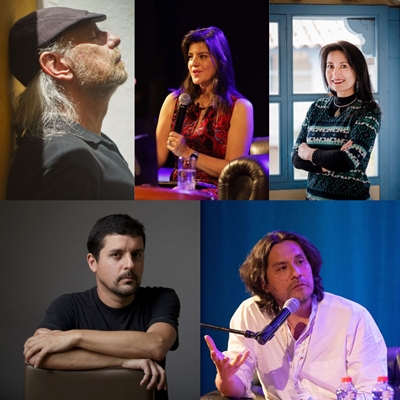
Event 13
The international human rights lawyer and author of East West Street, The Ratline and The Last Colony talks about his work and ideas about justice and criminality that have their origins in the city of Lviv to the novelist Victoria Amelina.

Event 74
Teresa Fuller Granda in conversation with Alberto Rincón Effio
Chabuca Granda, in her own words
Casa Tristán del Pozo - Fundación BBVA
Las palabras de Chabuca is a publication from the Biblioteca Abraham Valdelomar press, which brings together, for the first time, all the journalism content available related to the great Peruvian composer, creating an autobiographical profile with her own words, in a way that has never been done before. The book was first published in September 2020 to mark a century since her birth. That first edition had 14 interviews given by Isabel “Chabuca” Granda y Larco between 1959 and 1982 in countries such as Mexico, Venezuela, Argentina, Chile, Spain and Peru. This second edition has over 130 texts, mainly interviews, some given in Brazil and Colombia, as well as news stories, cuttings of her presentations, and posthumous homage paid after her death in March 1983. Her daughter, Teresa Fuller, Chair of the Chabuca Granda Cultural Association, will talk to the book’s editor, Alberto Rincón Effio.
With the support of the Biblioteca Abraham Valdelomar

Explore All Genres
- Afrodescendencias
- Latin America
- South to South
- Art
- Arts & Culture
- Children
- Classics
- Crime
- Culture
- Drawing
- Economics
- Equality
- Film
- Gender
- Health
- Heritage
- History
- Human Rights
- Indigenous Cultures
- Journalism
- Life
- Literature
- Lviv BookForum
- Medicine
- Memoir
- Music
- Nature & Environment
- Philosophy
- Politics
- Psychology
- Science
- Thinking
- World Affairs
- Young Adult



